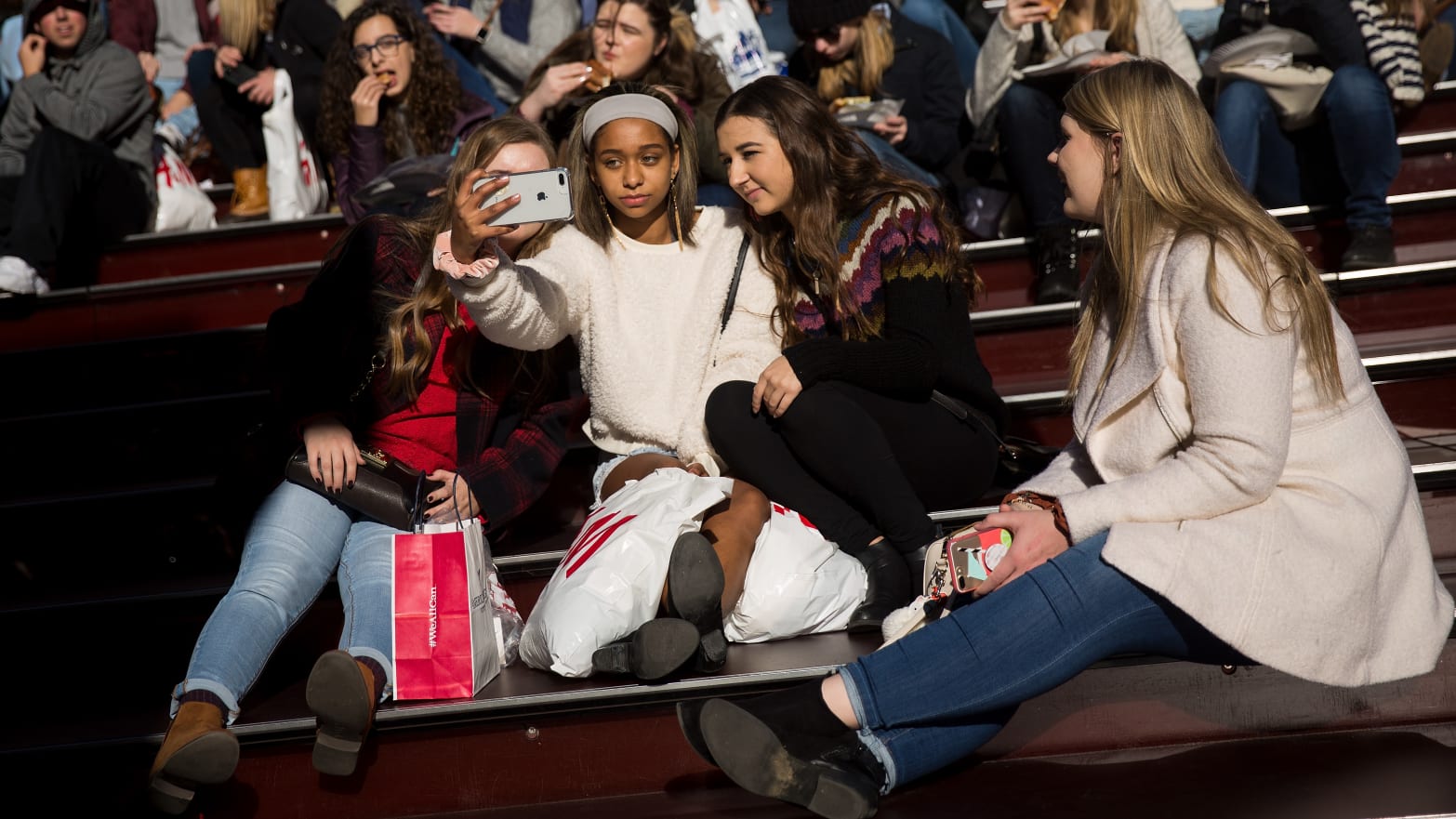New York City on Wednesday formally declared social media a threat to public health, issuing an advisory and reclassifying it as an “environmental toxin” over its impact on young New Yorkers.
Mayor Eric Adams announced the move during his annual State of the City address. Citing a need to “protect our students from harm online,” Adams decried companies like TikTok, YouTube, and Facebook for filling their platforms with addictive and dangerous features “fueling a mental health crisis.”
“We can not stand by and let Big Tech monetize our children’s privacy and jeopardize their mental health,” the mayor said.
Adams said that Dr. Ashwin Vasan, the city’s health and mental hygiene commissioner, would formally issue the advisory the same day. “We are the first major American city to take this step and call out the danger of social media like this,” he said. “Just as the surgeon general did with tobacco and guns, we’re treating social media like other public health hazards, and it must stop.”
As to how New York City plans to hold social media to account, the mayor promised that more details on the advisory’s implications would come at a future date.
The classification comes nine months after U.S. Surgeon General Vivek Murthy issued a warning about the “profound risk of harm” that excessive social media use poses to young Americans. In his 19-page advisory, Murthy detailed how little is known about the long-term effects of social media on youth mental health, and urged families to create plans to help guide their children’s use.
The city’s Wednesday advisory included data showing that its teens and tweens’ mental health “has been declining for over a decade” in conjunction with a rise in social media use, with data from 2021 showing that 77 percent of New York City high schoolers spent three or more hours every weekday parked in front of screens. (Murthy’s advisory made mention of one study that, using data from 2013 and 2014, found that spending more than three hours a day on social media doubled an adolescent’s risk of experiencing symptoms of depression and anxiety.)
Social media use and poor mental health have repeatedly been correlated by researchers. But studies have struggled to prove that the two have a causal relationship, particularly as social media “doesn’t affect all teens the same way,” according to the Mayo Clinic. Any number of factors—including age, time spent online, and personal life circumstances—also threaten to skew the data.
“I think the key question is, in 20 years’ time, will we look back at this conversation and be like, We were worried about technology in excess, when we should have been worried about raising our kids?” Amy Orben, a researcher at the University of Cambridge, told The Atlantic last summer. “It’ll probably be somewhere halfway between the two.”

